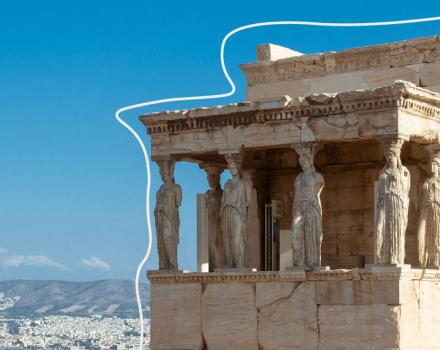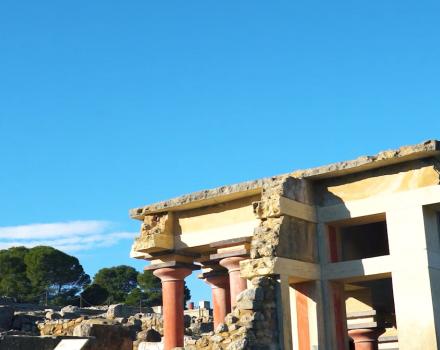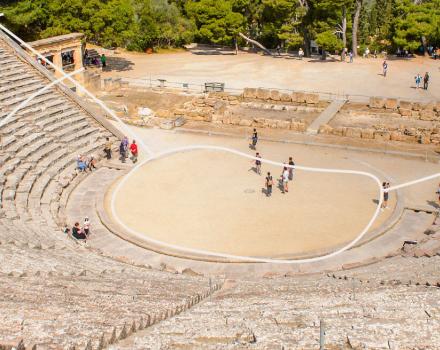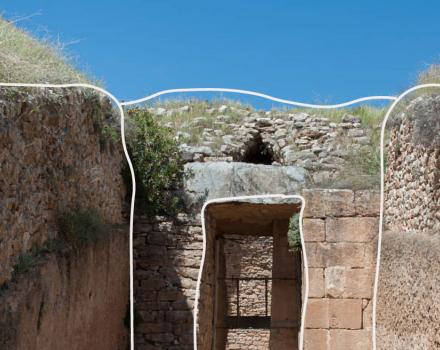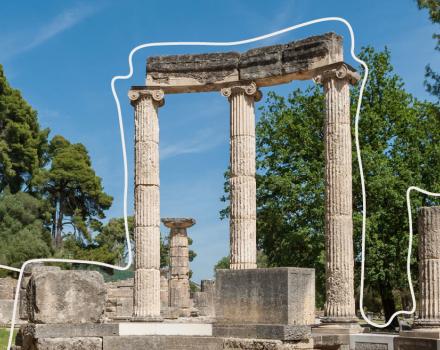«Εἰ θεοὶ διαλέγονται τῇ τῶν Ἑλλήνων γλώττῃ χρῶνται» - “If the Gods speak, they will surely use the language of the Greeks,”
Κικέρων – Cicero
Today, on the International Greek Language Day, we celebrate not just a linguistic tradition but a cultural cornerstone that has shaped civilizations for millennia. The words of Cicero, “If the Gods speak, they will surely use the language of the Greeks,” resonate with profound implications, encapsulating the enduring influence and significance of the Greek language across history and time. Let’s explore the essence of Greek language, its impact on global culture, and the reasons why it deserves recognition and celebration.
Greek, referred to by Cicero as the language of the gods, carries a weight of history and culture that few languages can match. Its origins can be traced back to ancient times, where it served as the medium for some of the most enduring works of literature, philosophy, and science. From the epic poetry of Homer to the philosophical dialogues of Plato and Aristotle, Greek has been instrumental in shaping human thought and understanding.
According to linguists like Geoffrey Horrocks from the University of Cambridge, Greek is considered one of the oldest documented languages in the world, with a continuous written record spanning over three millennia. Its grammatical structure, vocabulary, and syntax have influenced countless other languages, making it a cornerstone of linguistic study.
Beyond its academic significance, the Greek language holds a profound emotional connection for millions around the globe. For Greeks, both within Greece and in the diaspora, the language is a source of identity, pride, and cultural heritage. It serves as a link to their ancestors, preserving traditions, values, and a sense of belonging across generations.
The influence of the Greek language extends far beyond the borders of Greece itself. Throughout history, Greek culture spread across the Mediterranean and beyond, carried by trade, conquest, and intellectual exchange. The spread of Hellenistic culture following the conquests of Alexander the Great ensured that Greek language and ideas reached as far as Egypt, Persia, and India.
Scholars like Michael Flower from Princeton University, highlight the pivotal role of Greek language and culture in the development of Western civilization. The translation of Greek texts into Latin during the Renaissance sparked a revival of classical learning in Europe, laying the foundation for modern philosophy, science, and literature.
For many, the study of Greek language and literature represents a journey of discovery and enlightenment. Whether through the study of ancient texts or the appreciation of modern Greek poetry and prose, individuals around the world find inspiration and solace in the beauty and depth of the Greek language.
Today, as we commemorate the International Greek Language Day, let us reflect on the enduring legacy of this ancient tongue. Let us celebrate its richness, its beauty, and its profound influence on human civilization. Let us honor the poets, philosophers, and scholars who have contributed to its legacy, and let us reaffirm our commitment to preserving and promoting the Greek language for generations to come.
The words of Cicero remind us that the Greek language transcends mere communication; it is a conduit for the divine, a vessel for knowledge, and a testament to the enduring power of human expression. As we celebrate today, let us embrace the Greek language with reverence and gratitude, recognizing its timeless significance in shaping the course of history and enriching the lives of all who encounter it.
Eugenia Manolidou


